Protecting every child from vaccine-preventable disease
This year we mark World Immunization Week with alarm bells ringing. Despite the decades of progress made in immunizing children under 5 from vaccine-preventable diseases, COVID-19 has been a disaster for childhood vaccination, and the number of children not vaccinated has risen again.
In just three years, the world has lost more than a decade of progress.
As UNICEF’s latest State of the World’s Children Report points out, today 1 in 5 children are unvaccinated or under vaccinated, leaving them vulnerable to a range of vaccine-preventable diseases.
The State of the World’s Children 2023
The report states, children who are missing out on basic childhood immunization: “live in the poorest, most remote and most marginalized communities. To reach them, it is vital to prioritize investment in primary health care and in the health workers – mostly women – who deliver services. It is essential, too, to build confidence in vaccines and to make the most of a host of new ideas and technologies that can boost the power of vaccines and ensure they reach every child.”
UNICEF has been doing just this.
From community volunteers supporting health workers, to bringing awareness and information to remote communities to providing cold-chain solutions – various partners come together to ensure children are protected against disease.
Let’s take a look.
In Cambodia, COVID-19 inspires innovation in immunization for children
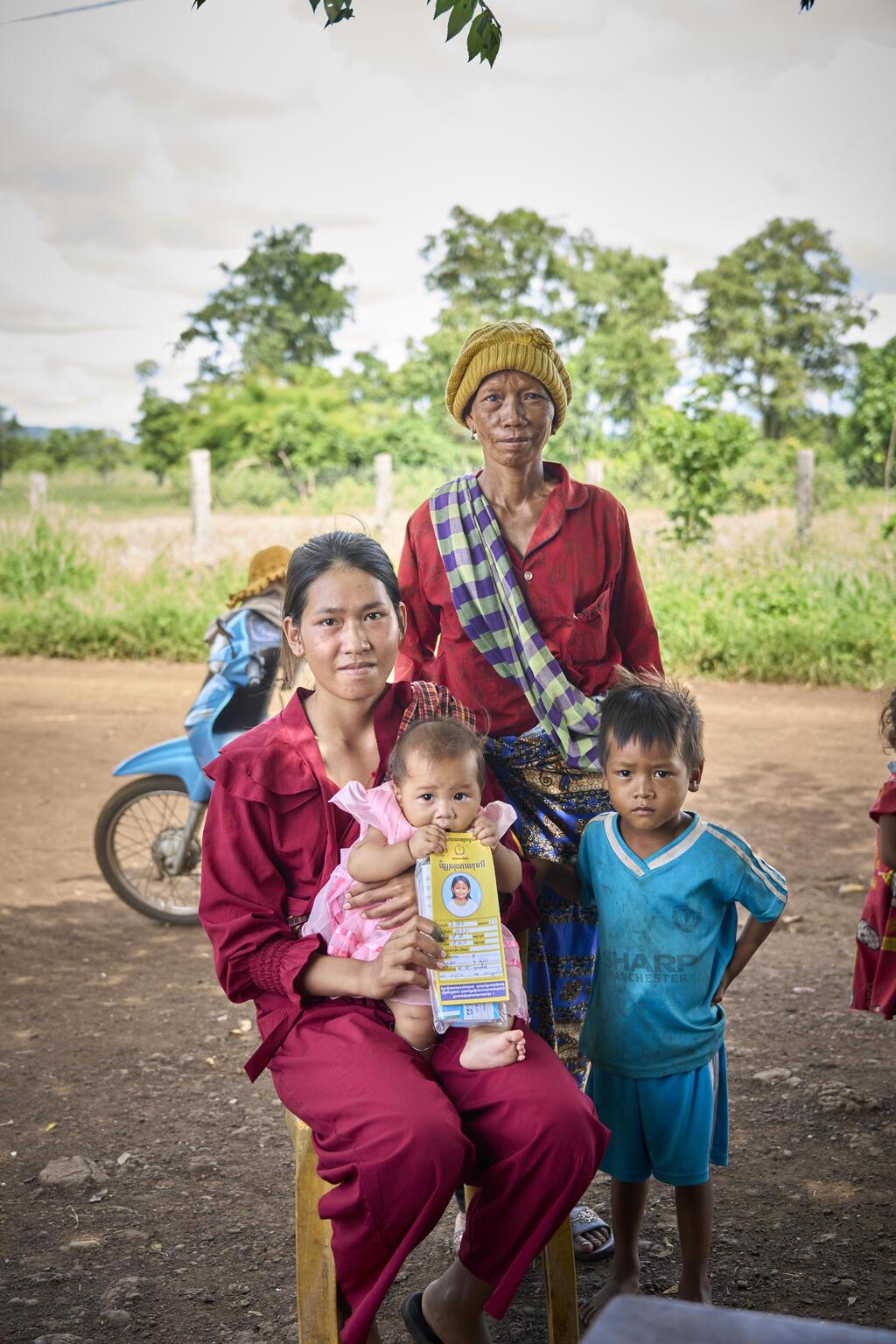
On a sweltering summer day, three generations of women in the same family arrived outside a small rural grocery store where a team of vaccinators had temporarily set up a one-stop shop for protection against disease
Beneath a shady tree, Satha, the baby, was immunized against measles and rubella. Her mother, Pum Sony, and grandmother, Krak Nhuong, received booster shots to protect them from COVID-19.
For mother and grandmother, the store-front vaccination service was a sign of progress for Mondulkiri, a remote region in the north-east of Cambodia, home to the Bunong indigenous community.
“There’s more information on all vaccines, and they’re delivered right here in our community,” Sony said. “Before, we had to travel on 15 kilometres of dirt roads to get vaccinated at a health centre.”
The Cambodian Government, with the support of partners including UNICEF and the World Health Organization, had launched an intensive communications and social behaviour change campaign aimed at reaching the entire adult population with COVID-19 vaccinations. This response to COVID-19 has inspired innovations in communication, technology and social behaviour change that are being applied to the national childhood vaccination programme.
In Ecuador, volunteers keep watch over children’s immunization
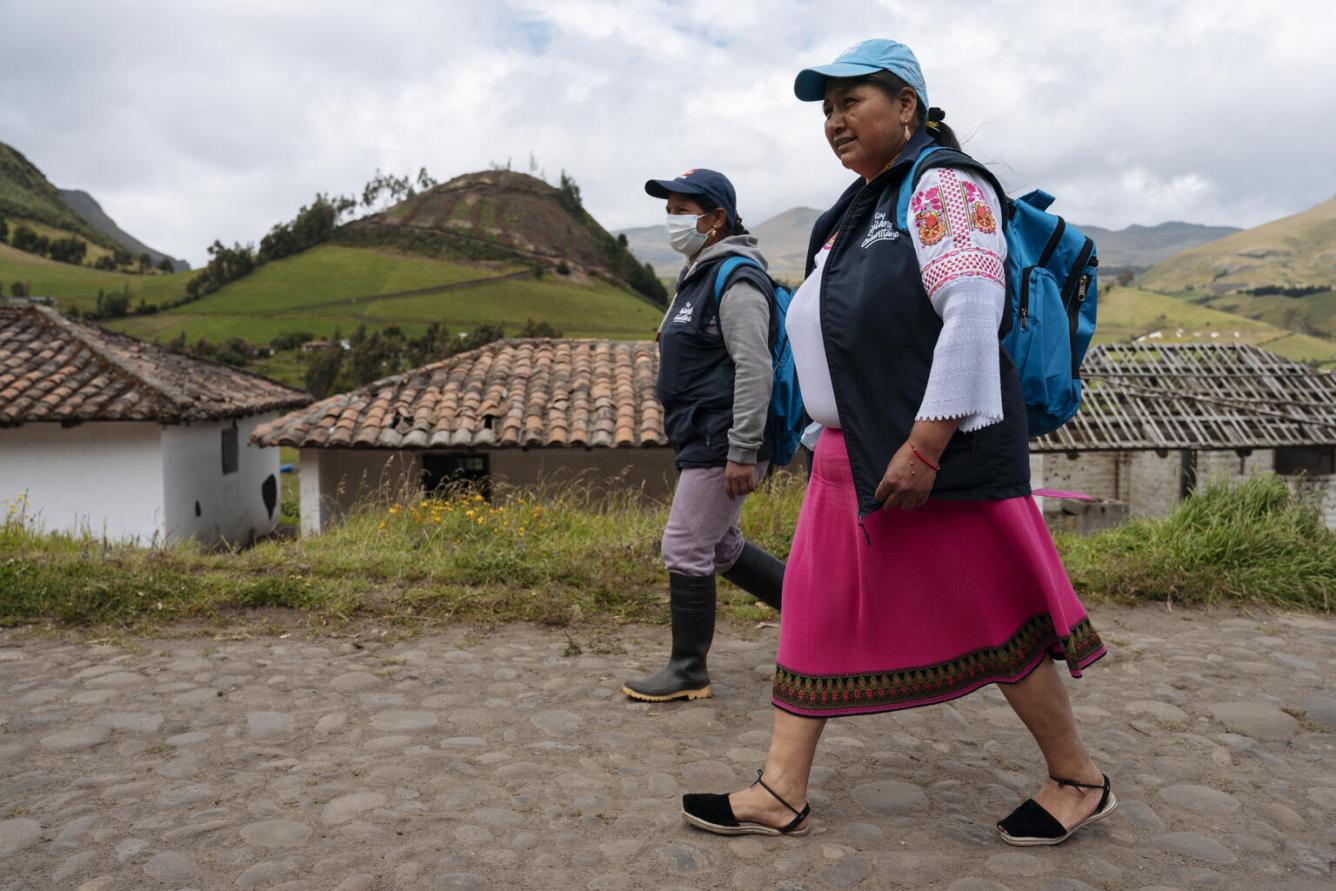
In one of Ecuador’s most successful community outreach programs, UNICEF-supported volunteers have helped immunize 8,200 children under 5 years of age against deadly diseases. The Epidemiological Community-based Surveillance program, provides training to community leaders to act as observers in their territories.
Haiti: Solar solutions to keep vaccines cool
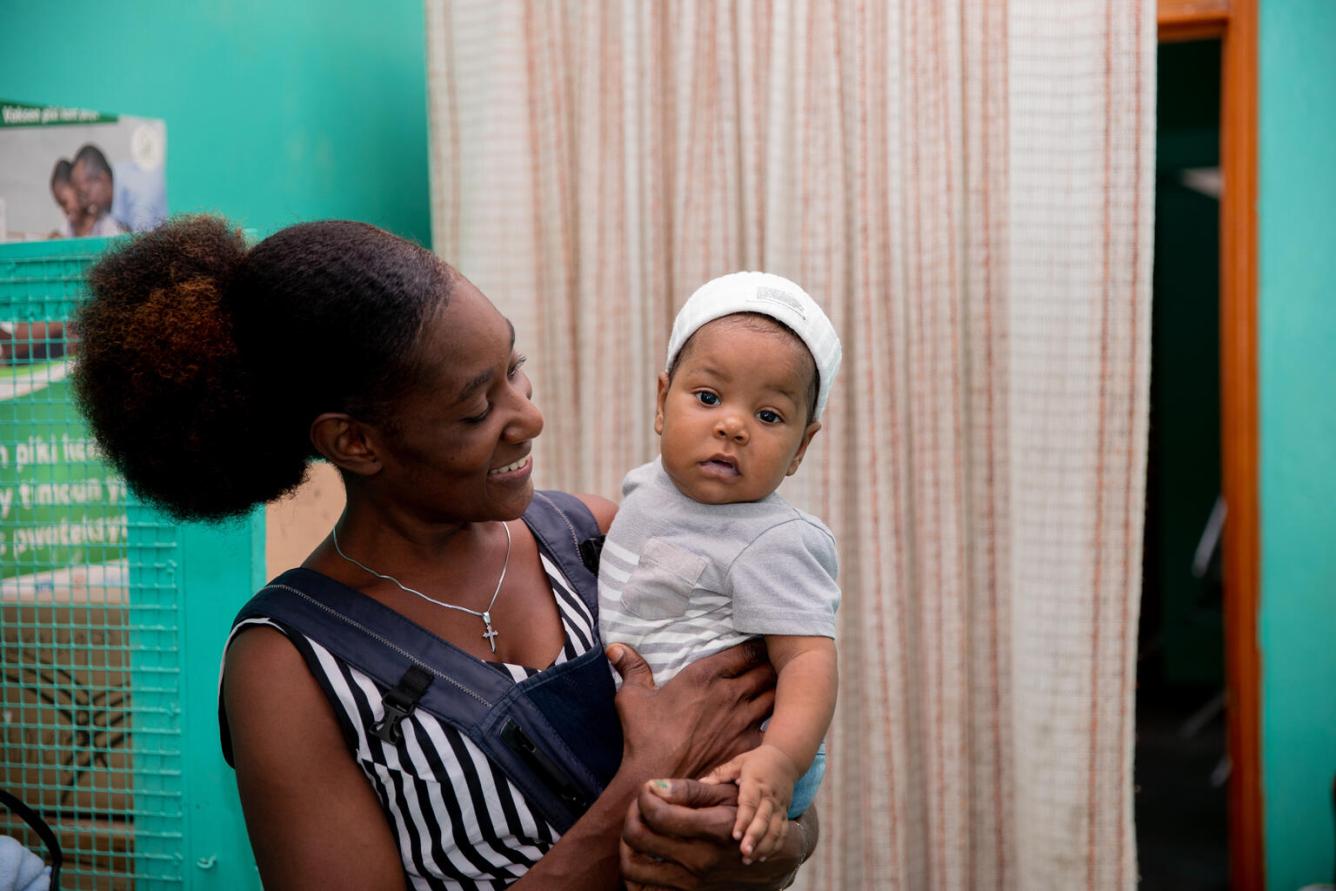
Every time 6-month-old Jamesly needs a vaccine, his mother Rosemirlande makes a 6-kilometre journey from her village to the Sacre Coeur Health Centre.
On one visit, the 27-year-old shopkeeper patiently took a seat in the waiting room, joined by about 20 mothers and caregivers who also held children on their laps. All were eagerly waiting for essential vaccines that will protect their child from diphtheria, diarrhoea, tuberculosis and pneumonia.
For Rosemirlande, it was worth the effort and the wait.
“If a mother loves her child, she must vaccinate him,” she said.
Rosemirlande can put her love into action thanks, in part, due to the UNICEF-supported solar powered refrigeration system that has allowed the Sacré Coeur Health Centre in Sud department to overcome persistent electricity shortages.
Over recent years, UNICEF and the Ministry of Public Health and Population have invested in solar energy to for health centres. In the tropical country, refrigeration is essential for maintaining perishable health supplies, especially vaccines.
Despite experiencing a deterioration in immunization coverage because of COVID-19, Sud department managed a coverage of 88 per cent for children protected with the Pentavalent 3 vaccine.
Nicaragua’s visiting nurses keep the community vaccinated and protected against deadly diseases
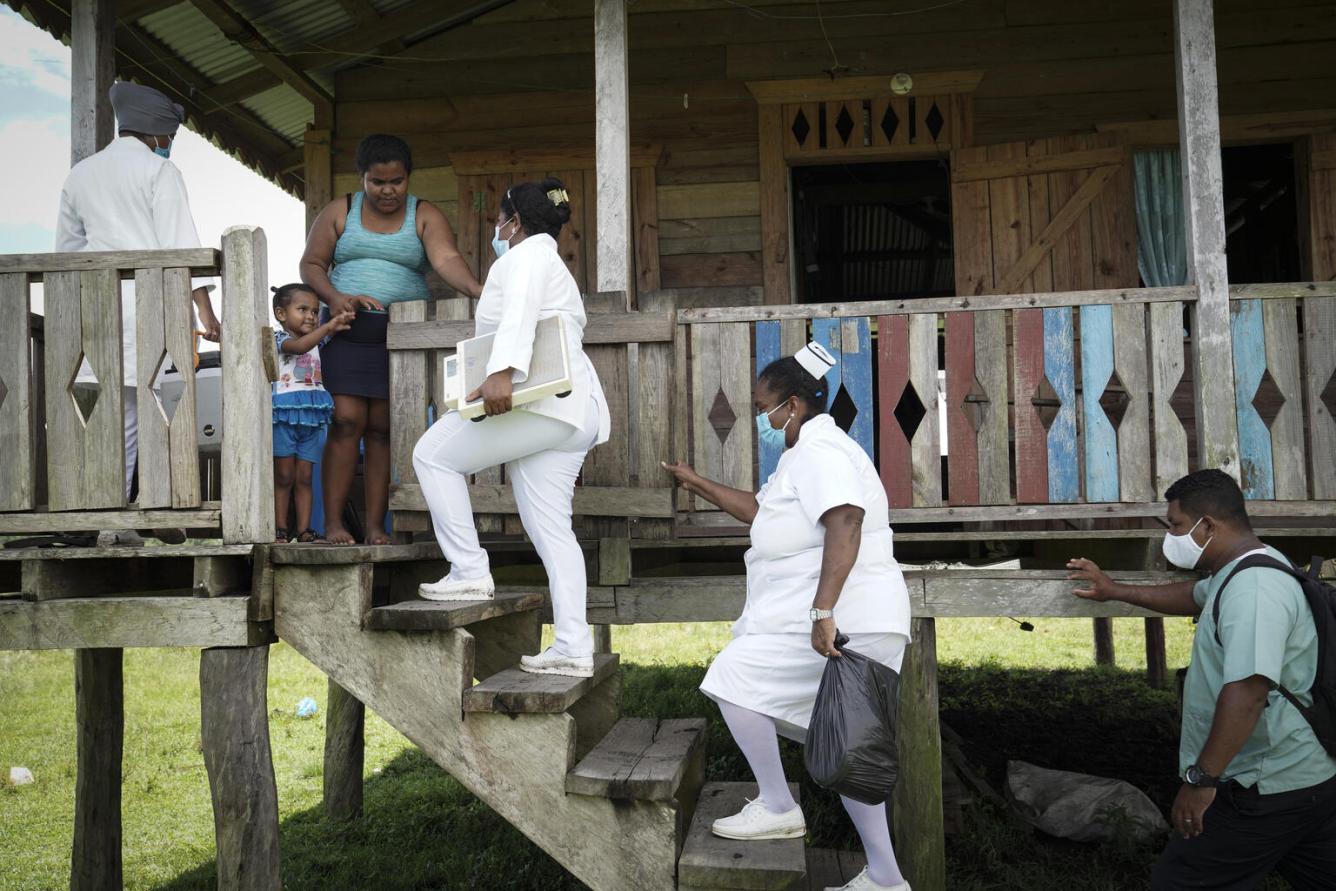
In a remote and poor community in the North Caribbean Coast Autonomous Region, where houses built on pillars protect people from an often punishing climate, the visiting nurses are a vital link between an indigenous community and immunization.
“Children are given routine vaccines according to their schedule, their height and weight,” said Reynilda Cramer, one of regular visitors to Mena and Rihana. “Heights are taken, deworming and vitamins are administered if appropriate. If anyone else in the family has health problems, we also take care of that other person.”
Cramer and her colleagues are part of the Community Health Network, a nationwide programme supported by UNICEF in collaboration with the Nicaragua Ministry of Health. The visiting nurses are volunteers elected at community-wide meetings. They are trained by the Ministry of Health to provide routine health care including immunization. They are at the forefront of an effort to bring services to the most remote areas of Nicaragua.
Social Influence in Kyrgyzstan: Faith leaders, volunteers and health workers build vaccine confidence in rural areas
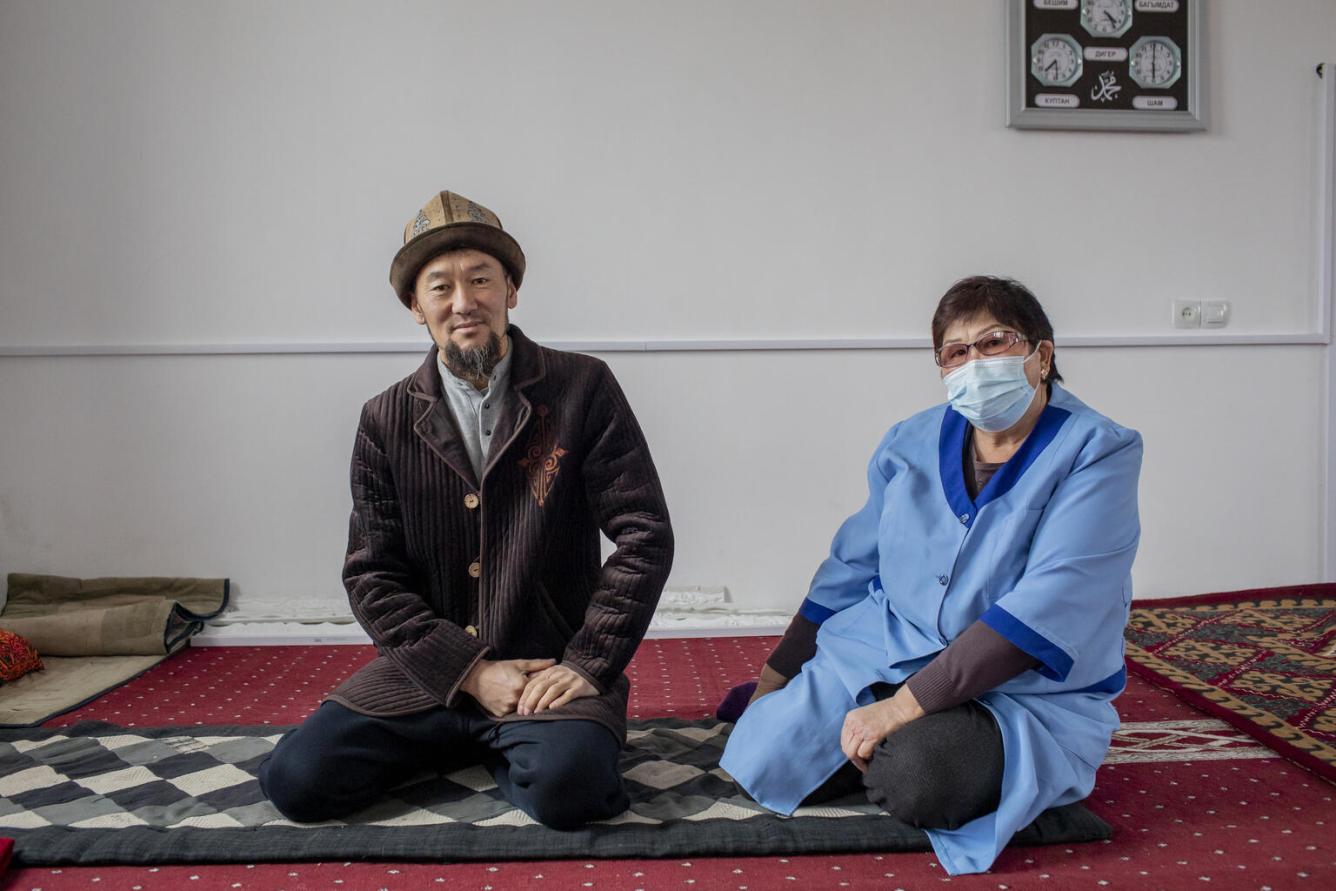
Misunderstanding and a lack of confidence in vaccination have been areas of concern in Kyrgyzstan, where the Republican Immunoprophilaxis Centre has received a growing number of reports of vaccination refusals since 2016. In 2021, there were more than 10,000 refusals.
To address the rate of vaccination refusal, in 2019 Kyrgyzstan’s Republican Health Promotion and Mass Communication Centre, with support from UNICEF and Gavi, the Vaccine Alliance, embarked on an effort throughout Kyrgyzstan to build confidence in vaccines and increase immunization coverage. The initiative focused on equipping volunteer Village Health Committees so they could coordinate with parents, caregivers, health-care professionals and religious leaders.
In Yemen a vaccinator and midwife take to the streets to prevent diseases and protect children
For Ghada Ali Obaid, vaccinating children is not a job. It’s a calling.
As head of immunization at a health centre in the Dar Sa’ad district of Aden, Yemen, Ghada takes to the streets to reach out to children who might otherwise miss vaccines against preventable diseases. In June, for example, Ghada was part of a response to a measles outbreak in Yemen. The immunization campaign reached over 1.2 million children aged 6–8 months with vaccinations against measles, mumps and rubella.
“The essence of our work is saving peoples’ lives and reducing the suffering of women and children,” said Ghada. “Personally, this is the most significant indicator of success in my work and life.”
In Yemen, Ghada is part of a corps of women whose life-work is to be the first line of defence against vaccine-preventable diseases. Indeed, women are the backbone of health care in Yemen, a country with more than 4,500 health facilities.
